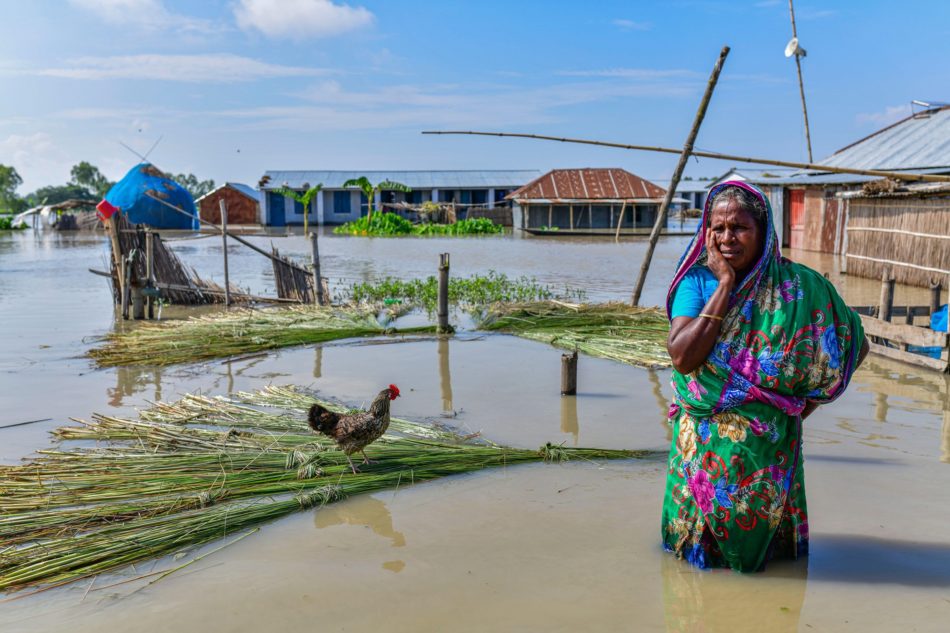Self-proclaimed as the world’s largest democracy, India has no respect for the rights of its neighbors. It knows only how to take from others and does not know the meaning of giving to others. India has been deceiving Bangladesh for many years by not signing its promised Teesta water-sharing agreement with Bangladesh since 1983. India has been saying that it will sign the treaty with Bangladesh immediately but it is now 2021 and it still has not done so.
Teesta, the famous river that came to Bangladesh after melting at the border, was once a fertile area. Settlements sprung up in large areas including Bangladesh’s Lalmonirhat, Nilphamari, Rangpur, and Kurigram around this river. The world-famous Bhavaya music tune has been created in a match with the livelihood of the people in the region and the flow of the river.
But Teesta is no longer the same. During the monsoon season, the river has only water for a couple of months and before the rains end, it dries up into a dead and dry canal.
India is getting an opportunity to cultivate in the dry season by diverting water through the Ghazaldoba Barrage Dam to an irrigation canal. As a result, Teesta is dying day by day in Bangladesh due to a lack of water.
Vast islands have arisen in the middle of the river while the Indian government controls the normal flow of the Teesta by building dams. As a result of the unilateral withdrawal of water, this river in Bangladesh has dried up.
Meanwhile, in the dry season, India withheld water, but in the rainy season, all the gates of Ghazaldoba Barrage were opened to control the water level. As a result, large areas of several districts around the Teesta in Bangladesh became flood-prone. Houses and cultivable lands were washed away by the floods.
According to the Water Development Board (Paubo) of Bangladesh, the 400 km long Teesta River flows through India’s Sikkim and Darjeeling-Jalpaiguri in northern West Bengal, Lalmonirhat in Bangladesh, Rangpur through Chilmari in Kurigram and joins the Brahmaputra River at 124 km.
According to the Dalia office (Paubo) in Bangladesh, in 1977, the Bangladesh government adopted a plan to build a barrage, head regulator, and a closure dam on the Teesta River. When the matter came to the notice of the Indian authorities, they built a 921.53-meter-long barrage at Ghazaldoba in Jalpaiguri (63 km upstream from Bangladesh). Through this barrage, India is irrigating its agricultural lands with 80% of the total water flow of the Teesta.
Dalia Paubo, an engineer, said the remaining 20 percent of the water was released downstream into India, but after crossing a distance of 63 km, the current became very weak on the way to the barrage area in Doani point in Bangladesh. He said that at a time when India was closing the gates of their barrages, if a minimum of one thousand cusecs of water was supplied to the irrigation canal, there would be no way to release it downstream.
The crop season in this region of Bangladesh is without water: I visited the Teesta Barrage area of Hatibandha Upazila in Lalmonirhat on October 16, 2021 (in the afternoon) and saw that all the 44 gates of the barrage were closed. As a result, as much water as is available is diverted to the Teesta Irrigation Canal and the main river is almost waterless.
People in the riparian areas say that as the depth of the river decreases, floods occur in large areas during the monsoon season and the houses wash away.
On the other hand, due to the lack of water in the river during the dry season, there is an irrigation crisis in the riparian areas as the groundwater level decreases. Meanwhile, the farmers count their losses year after year as they are not able to irrigate the land due to lack of water.
River researcher and director of the Riverine People (a rights organization in Bangladesh) Tuhin Wadud said, “The Teesta is a very good river compared to other rivers. Occupancy pollution is relatively low here. But the river is dying day by day as India unilaterally withdraws water year after year. In this situation, the implementation of the river water sharing agreement has become very urgent.“
Nazrul Islam Haqqani, president of the Save Teesta River, Save the Struggle Council, said, “The Teesta River is the lifeblood of the Rangpur region. But that river is now dying. We have been agitating for a fair share of water for a long time and will continue to do so. Besides, I think the implementation of the Teesta master plan in the government’s plan should be expedited.“
Above all, India has made the Teesta River into a dead canal. India always talks about human rights and democracy. But I say that it is a mockery, deception and pretension. Until India stops such underhanded tricks, it should talk not about ethics and morality.
*The writer is a teacher and researcher based in Bangladesh. He has a Master’s in International Relations from Dhaka University.
November 26, 2021
The viewpoints expressed by the authors do not necessarily reflect the opinions, viewpoints and editorial policies of Aequitas Review.


